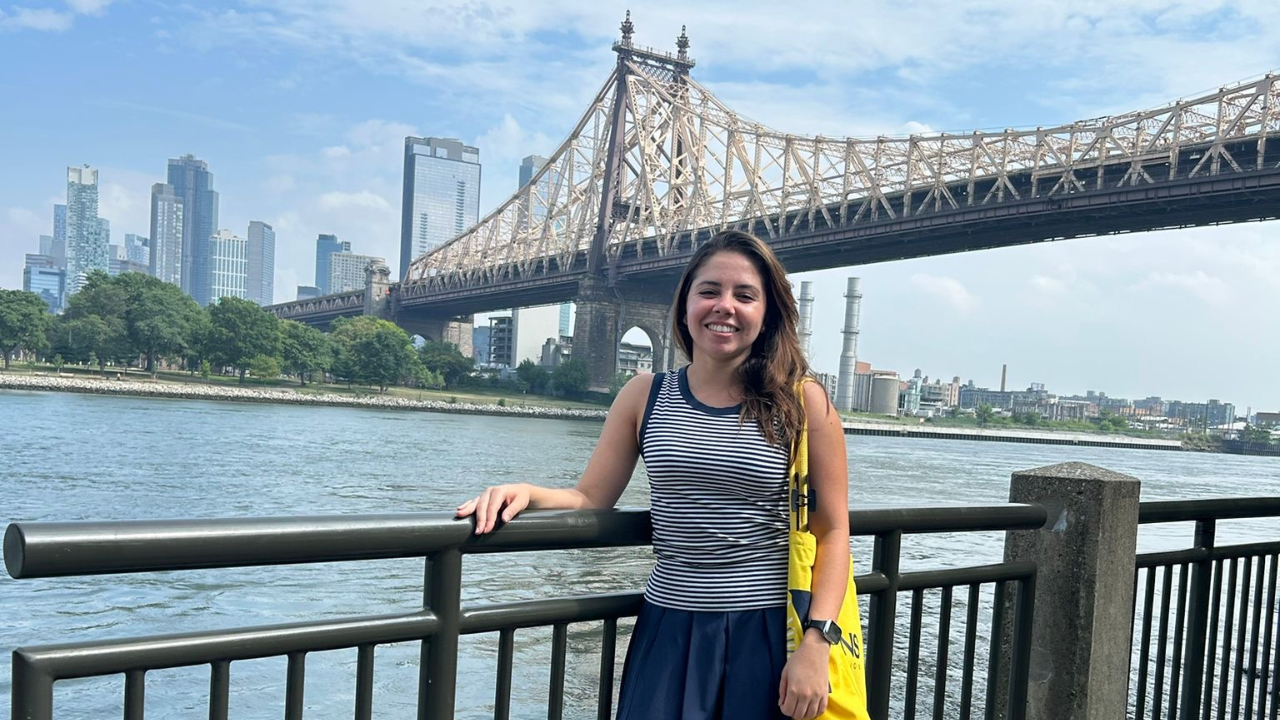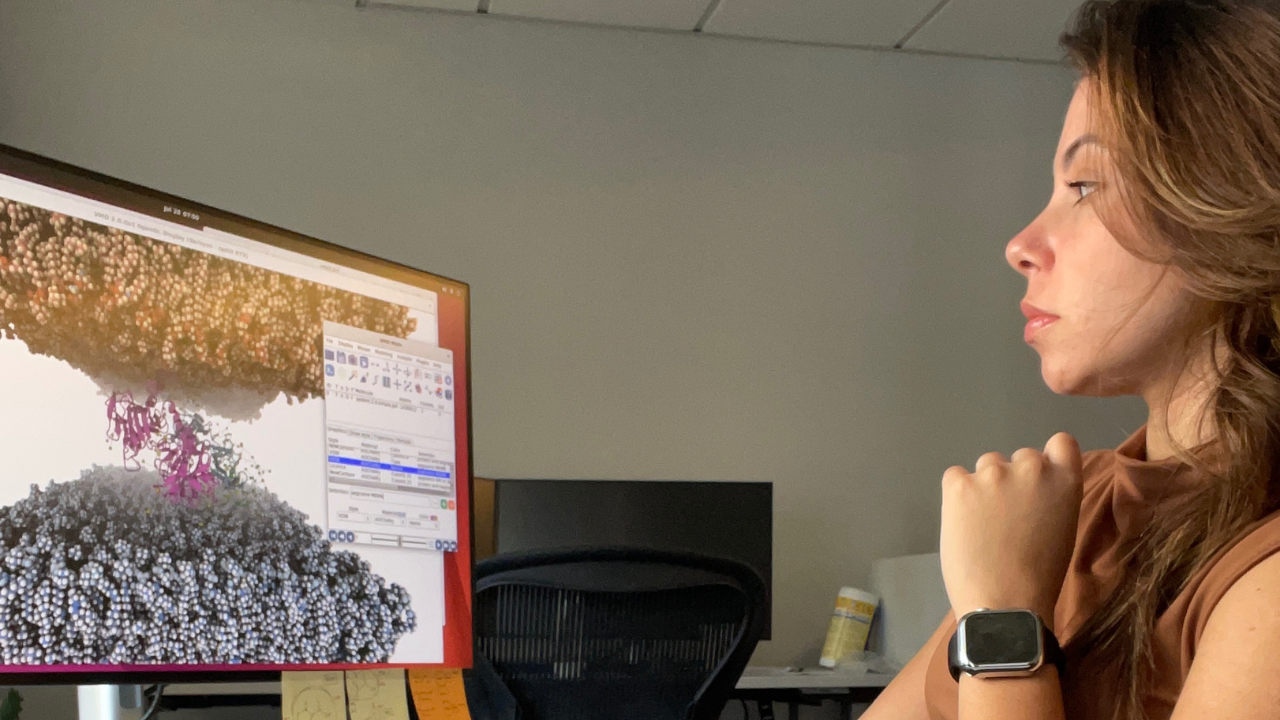content body
On a sunny morning in New York, Raissa Santos de Lima Rosa sat on a quiet patio surrounded by the buzz of one of the world’s busiest cities. It was a far cry from her usual lab at Auburn University’s College of Sciences and Mathematics, but this summer, the doctoral student was right at home in a new research environment.
Santos de Lima Rosa is currently pursuing a doctorate in chemistry and doing research in the Department of Physics. She is passionate about building bridges between these fields by applying computational biochemistry and biophysical concepts to the study of gut bacteria. In particular, she investigates specialized protein complexes — cellulosomes — that attach to both intestinal cells and dietary fibers.
"These robust biomolecular machines finely regulate cell‑adhesion strength under high shear stress through sophisticated mechanical mechanisms,” she explained. “Using computational methods as a ‘molecular microscope,’ we aim to unravel how these complexes govern mechanical interactions in living systems and to translate those insights across chemistry, biology and physics.”

Raissa Santos de Lima Rosa, a doctoral student in the College of Sciences and Mathematics, enjoys a break along Roosevelt Island in New York City during her summer internship at the Simons Foundation.
This summer, Santos de Lima Rosa built new hands-on experience and broadened her research skills through a competitive internship at the Flatiron Institute — the research division of the Simons Foundation in Manhattan, a private organization dedicated to advancing discovery-driven science in mathematics, physics and the life sciences.
At the Flatiron Institute, she works in the Center for Computational Biology, part of a collaborative research environment that brings together experts across physics, math, biology and chemistry. Her project this summer focuses on studying the physical properties of collagen molecules — an area of growing importance in fields ranging from pharmaceuticals to regenerative medicine.
“We’re trying to understand how collagen assembles and behaves,” she said. “It’s a molecule we all have in our bodies, and studying it helps us better understand biological systems and potential medical applications.”
Her team includes both experimentalists and computational researchers, offering her a rare chance to work across disciplines in real time.
“At Auburn, even though we have collaborations, you’re not always working that closely with experimentalists,” she said. “Here, we’re living and working together, and that makes conversations about the project happen naturally. It’s a very productive environment.”
The internship spans just two and a half months, but its impact will last much longer. Santos de Lima Rosa says she’s gaining a deeper understanding of how to connect theoretical models with real-world data, as well as broader experience working across different levels of biological systems.
Back at Auburn, she’s equally active in supporting the campus community. As vice president of the COSAM International Student Association, she’s helped organize events and campus tours to welcome incoming international students.
“It’s a lot of new information when you first arrive, so we try to make the transition easier,” she said. “We show students where to go, what offices to visit and how to navigate everything.”
In addition to her summer research, Santos de Lima Rosa is also a recipient of an Alabama EPSCoR (Established Program to Stimulate Competitive Research) grant connected to her NSF-funded project at Auburn. She said more students should be aware of these opportunities, which can support their research and open doors to new experiences.
“We need to share more of these opportunities among graduate students,” she said. “Anything that lets you dedicate more time to your research makes a big difference.”
Outside the lab, she’s taken full advantage of life in the city. She’s visited New York’s museums — even spending eight hours exploring a single one — and taken in the city’s music and culture.
“It’s amazing,” she said. “There’s always something new to see or learn.”
Looking ahead, she’s not yet sure what her next step will be, but she’s confident this experience will play a meaningful role in whatever comes next.
“Any kind of research experience is valid,” she said. “You just have to be willing to get out of your comfort zone. That’s how you grow.”





